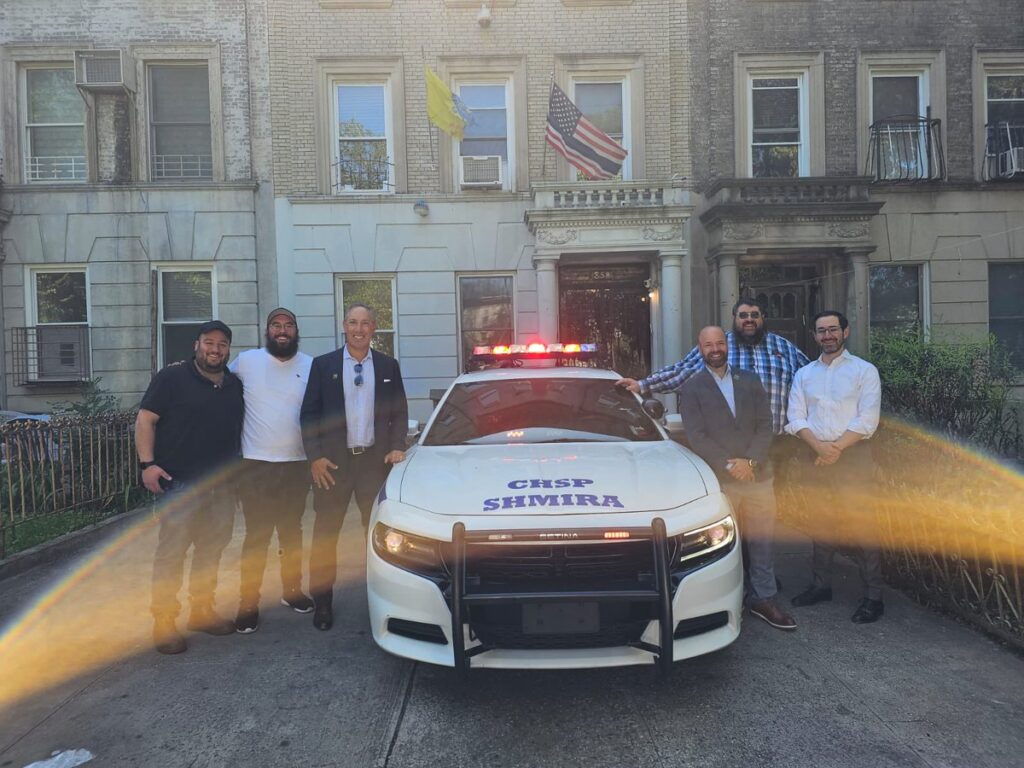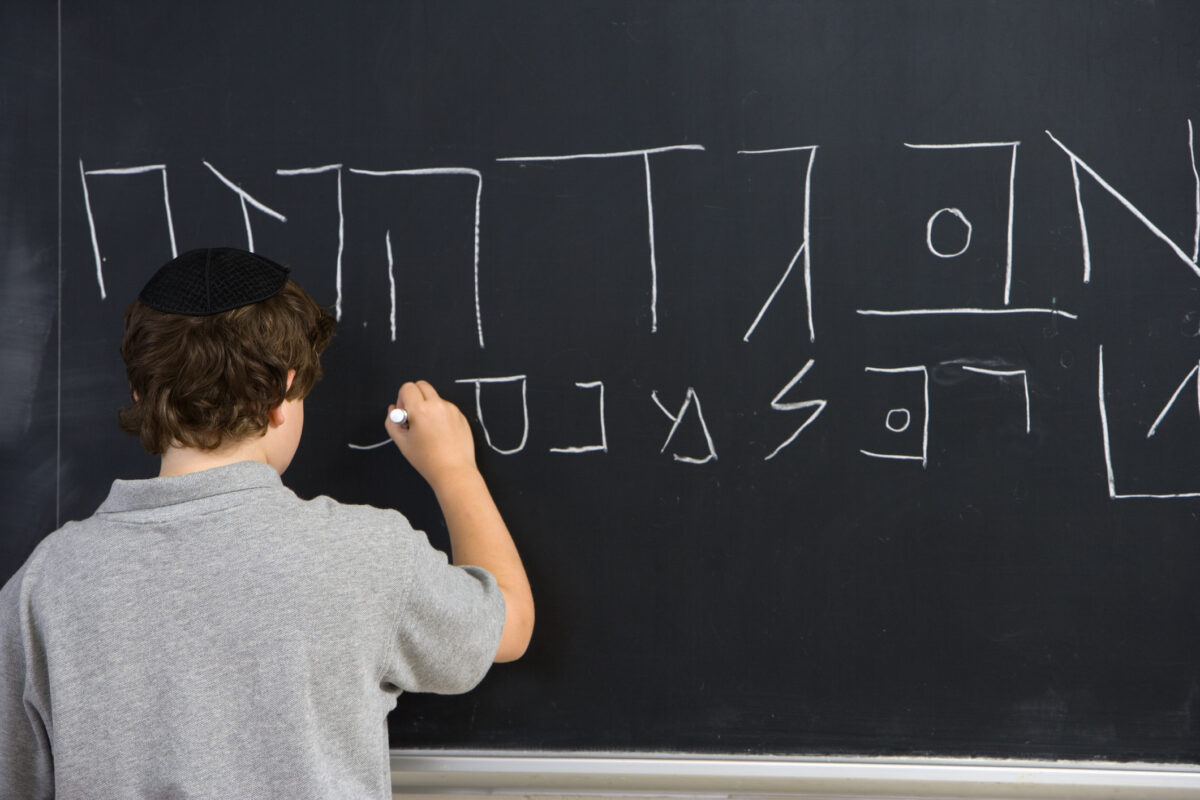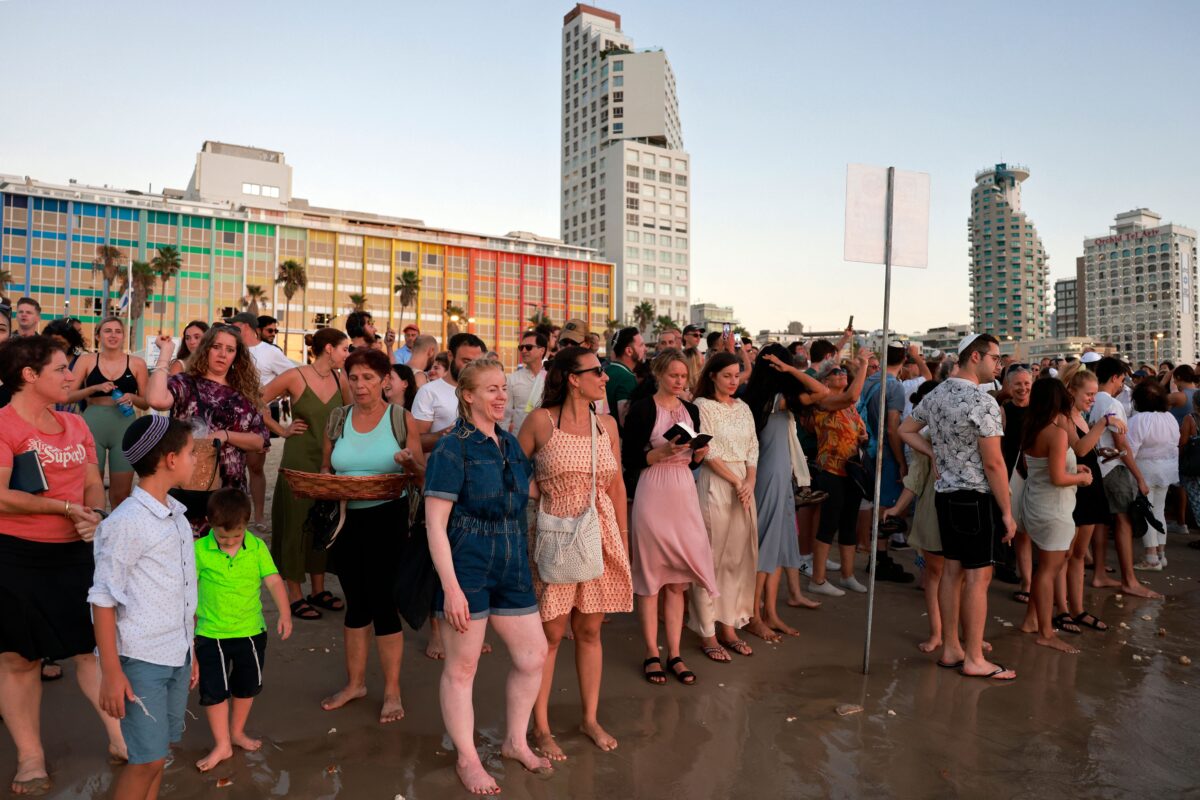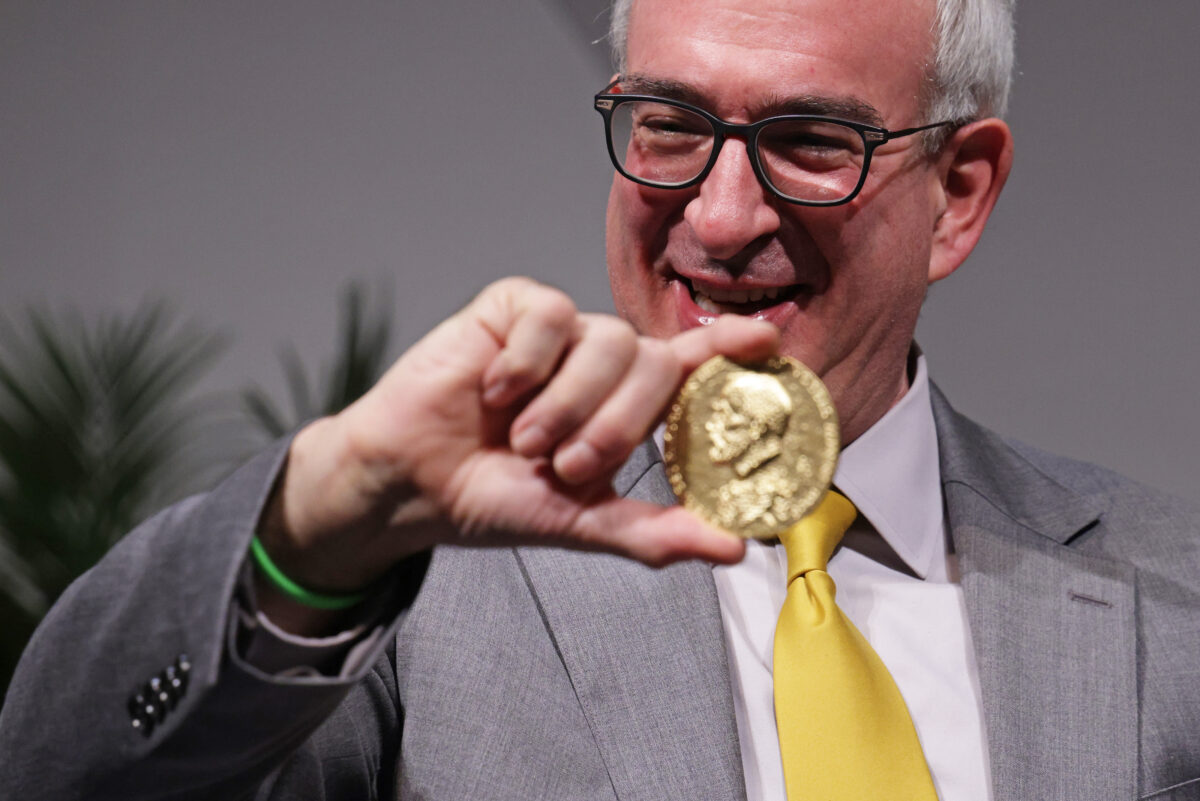Your Daily Phil: Rosh Hashanah in quake-ravaged Morocco + Patrol cars for Brooklyn’s ‘Shomrim’
Good Monday morning!
In today’s edition of Your Daily Phil, we report on a new security initiative in Brooklyn and feature an opinion piece from Rabbi Andrew Ergas about the importance of Hebrew. Also in this newsletter: Israeli Prime Minister Benjamin Netanyahu, Jason Kunzman and Rabbi Matthew H. Simon. We’ll start with a United Hatzalah team spending Rosh Hashanah helping Moroccan villages hit by this month’s earthquake.
A team of 14 United Hatzalah volunteers — doctors, paramedics, nurses and others — spent Rosh Hashanah traveling to remote villages in Morocco’s Atlas Mountains, treating over 100 people each day, some of whom have been without medical attention since before the devastating earthquake struck the area on Sept. 8, reports eJewishPhilanthropy’s Judah Ari Gross.
“There are usually around 300-500 people in the village. We treat around 100-200 people a day. Some of them haven’t seen a doctor in months. There are people who lost family, sometimes parents, sometimes children,” Samuel Arrouas, the director of United Hatzalah France, who is part of the delegation, told eJP this morning.
The United Hatzalah mission traveled to Morocco days after the earthquake, which has killed more than 2,800 people, injured thousands more and affected some 300,000, according to the most recent United Nations statistics. In recent days, the United Hatzalah team, which is based in Marrakech, has been traveling from village to village, based on the recommendations of and in coordination with local authorities. They set up a two-tent “foldable” clinic and provide whatever medical care that they can.
When Arrouas spoke to eJP just after 7 a.m. local time, he was already hours into his journey to the village of Askaouen, south of Marrakech, where the team would be working on Monday and possibly on Tuesday. “There has been no medical assistance in that place since the beginning,” he said. “There will be 300-400 people waiting for us. We may sleep there to avoid the trips back and forth.”
While the team is primarily focused on providing medical assistance, when members have free time, they make an effort to interact with the local residents, particularly the children. “We give them toys, balloons,” he said. “There are a lot of orphans, who have lost parents and siblings and have no one to go to. They are very thankful. You give them a small present and you can see the stars in their eyes.”
Arrouas said the team worked through the holiday as normal. Though most members of the United Hatzalah delegation are Jewish, there is also one Arab Israeli doctor and a Muslim paramedic from the United States who joined the team. Arrouas said he also hired local French nurses to help them as well.
“A small part of the team had enough time to pray,” he said, “but the team that was in the field — we prayed for them.”
Read the full report here.
Safety first


The Community Security Initiative in New York provided new patrol vehicles and funding to run them to four Jewish civilian patrols across Brooklyn, which saw dozens of antisemitic attacks last year. The patrol vehicles were delivered to the four participating organizations, known as Shomrim (Hebrew/Yiddish for guards), ahead of the High Holy Days as part of a six-month pilot program. The participants are: Shomrim BoroPark, Flatbush Shomrim, Williamsburg Shomrim and Crown Heights Shmira, reports eJewishPhilanthropy’s Judah Ari Gross.
A deterrent effect: Ahead of the High Holy Days, Jewish security organizations have warned of an increased risk of attacks on synagogues and against Jews in general. Recent weeks have also seen dozens of cases of vandalism and “swatting” of synagogues and Jewish schools, in which police are called under false pretenses to disrupt activities. The funding for the program — $400,000 — was provided by UJA-Federation of New York and private donors, which covered not only the vehicles but also “associated costs [of using the vehicle] and resources to increase patrol presence,” CSI said. “This effort will bolster security presence in areas where Jews are an easy target for would-be assailants. Additional vehicular support will create a deterrent effect and, hopefully, we can prevent attacks before they happen,” Mitchell Silber, executive director of CSI said in a statement.
At special risk: Hindy Poupko, senior vice president, community planning and external relations of UJA-Federation of New York, said in a statement the program was necessary as it was “unrealistic to expect [the NYPD] to be able to cover every street corner 24/7, especially during the High Holy Days.” While there has been a nationwide increase in reported antisemitic incidents, Brooklyn has seen a disproportionately large number of violent attacks on Jews. Relatedly, Orthodox Jews – many of whom live in Brooklyn — have also been disproportionately targeted in assaults. In its 2022 “Audit of Antisemitism in America,” the Anti-Defamation League found that of the 111 assaults that took place that year in the U.S., 52 of them — 47% — occurred in Brooklyn and visibly Orthodox Jews were targeted in 53% of the assault cases nationally.
Read the full report here.
What are we saying?
It’s time for teshuva – for Hebrew education


“With Rosh Hashanah behind us and Yom Kippur ahead, we will soon gather once again to read, sing and make heartfelt declarations in Hebrew. And for far too many of us, there will still be little to no understanding of the words coming out of our mouths,” writes Rabbi Andrew Ergas, CEO of Hebrew at the Center, in an opinion piece for eJewishPhilanthropy.
Unleash the Hebrew: “On Rosh Hashanah, a new year begins and the opportunity for us to individually and collectively be written in the Book of Life is renewed again, creating the opportunity for us to both improve ourselves and ensure our future… By finding ways to unleash the power of Hebrew in North America, together we can ensure that the largest Jewish community outside of Israel does not give up its commitment, ownership and love of the Jewish language.”
New year’s resolutions: “Our tradition teaches that shaarei teshuva, the gates of repentance, are always open. Let us use this moment to reflect on what we can do to better Hebrew language education and repent our misguided way, collectively stepping through the gates of Hebrew… As we use Hebrew words to pray for ourselves and our community, let us pray for true understanding and then take a big step towards change.”
Read the full piece here.
Worthy Reads
Fighting the World’s Oldest Hatred: On the Ford Foundation’s website, the organization’s president, Darren Walker, calls for Americans to do more to recognize and combat antisemitism. “We cannot strive to mend without first acknowledging what is broken. And among the wrongs we must make right, one specific sin that stains the conscience of our nation is the resurgent scourge of American antisemitism. Today, antisemitic bigotry is becoming more brazen — and dangerous. During the last five years, the Jewish-American community has endured a record number of hate crimes, a 35% increase between 2021 and 2022… Antisemitism is among the oldest forms of hate. Its ongoing expression aggravates intergenerational trauma for a community that remains vulnerable — for a people who experience that vulnerability intensely, despite what some simplistically assume to be their full acceptance in mainstream American life… We can and must do better. We must look to the lessons of history, which affirm — as do the Jewish high holy days this week — that there can be no reconciliation without atonement, no justice without accountability.” [FordFoundation]
Time to Catch Up: In The Chronicle of Philanthropy, Craig Kennedy lays out his case for why the legislation regulating tax deductions and asset distribution for private foundations for the past 50 years should be updated to encompass many universities, hospitals and museums as well. “Big nonprofit endowments are not exactly equivalent to private foundations. However, they are close enough in function and operation to warrant a lower tax benefit and a mandatory distribution requirement. The wealthiest of these institutions have experienced massive increases in their assets, and that growth has given them the type of influence and power that, in 1969, was associated with private foundations. Asking their donors to take a smaller deduction and demanding that the accumulated assets are put to good use seems a small price to pay.” [ChronicleofPhilanthropy]
Getting Asia to Do More to Fight Climate Change: Despite being home to 60% of the world’s population and producing more than 50% of global emissions, only 12% of global climate change mitigation philanthropy comes from Asia, write Luis Alvarado and Seok Hui Lim in the World Economic Forum’s blog, Agenda. “For many philanthropists, especially in Asia, climate and nature are still perceived as too technical and this horizon too far out. It has traditionally been easier to focus on poverty, education and health… In the region, a new generation of philanthropists want to be part of the climate and nature solution. The goal now is to match this growing ambition and make it easier for Asian philanthropists to get involved in the fight for nature and climate.” [Agenda]
Around the Web
Israeli Prime Minister Benjamin Netanyahu set off for the U.S. last night, where he will visit the West Coast before heading to New York for the United Nations General Assembly. Throughout his trip, Netanyahu is expected to meet protesters opposed to his government’s judicial overhaul, whom he accused of “joining forces with the Palestine Liberation Organization and Iran”…
Ahead of the U.N. General Assembly, climate-focused foundations are hoping that the issue of the environment will be a leading topic of discussion at the international summit, and that this will in turn prompt increased funding…
Jason Kunzman began his role as CEO of Jewish Community Center of Greater Pittsburgh. Kunzman, who previously served as the organization’s chief programming officer, replaced Brian Schreiber, who served as president and CEO for almost 25 years…
The National Science Foundation and the Simons Foundation, founded by Jewish mathematician and hedge fund manager Jim Simons, donated $50 million to Northwestern University to establish the National Institute for Theory and Mathematics in Biology…
The Rockefeller Foundation, whose funding came from fossil fuels, will make a $1 billion investment over the next five years to “advance climate solutions”…
Rabbi Matthew H. Simon, a former president of the Jewish Federation of Greater Washington and mainstay in local and national Jewish communal organizations, died on Sept. 10 at 91…
Pic of the Day


A group of Jews performs the tashlich ritual on the beach in front of the Dan Hotel Tel Aviv yesterday, ceremonially casting away their sins ahead of Yom Kippur next week.
Birthdays


Professor of economics at MIT and a 2021 Nobel Prize laureate in economics, Joshua Angrist…
Marina Del Rey, Calif., resident, Kathy Levinson Wolf… Retired Johns Hopkins neurosurgeon, he served as U.S. secretary of housing and urban development in the Trump administration, Dr. Ben Carson… Business executive who served as co-CEO of SAP and CEO of Hewlett-Packard, Léo Apotheker… Harvard professor of psychology, specializing in visual cognition and psycholinguistics, Steven Pinker… U.S. senator (R-AL), Tommy Tuberville… Former CEO of The Jewish Federation of Sarasota-Manatee, Howard Tevlowitz… Executive director of the Los Angeles Westside Jewish Community Center since 2004, Brian Greene… Attorney general of Israel, Gali Baharav-Miara… One of the earliest Israeli tech entrepreneurs, he is best known for starting Aladdin Knowledge Systems in 1985, Yanki Margalit… Founder and executive chairman of Delek US, Ezra Uzi Yemin… Life and culture editor of The Times of Israel and children’s book author, Jessica Steinberg… Classical pianist, Simone Dinnerstein… Associate vice president, public affairs and executive director of the Advocacy Corps at the Jewish Federations of North America, Karen Paikin Barall… NBC and MSNBC legal analyst, she was a 2021 candidate for Manhattan district attorney, Tali Farhadian Weinstein… Comedian, actor, producer and screenwriter, Billy Eichner… Rome bureau chief of The New York Times, covering Italy and the Vatican, Jason Horowitz… Co-host of “Bloomberg Surveillance” every morning on Bloomberg Television and Bloomberg Radio, Lisa Abramowicz… CNN analyst and a former member of the South Carolina House of Representatives, Bakari Sellers… Professional poker player whose total career live tournament winnings exceed $15.3 million, Nick Schulman… Editor-in-chief of The Jerusalem Post, Avi Mayer… Baseball broadcaster for the Washington Nationals, Dan Kolko… Director at the Levinson Group, Zak Sawyer…








